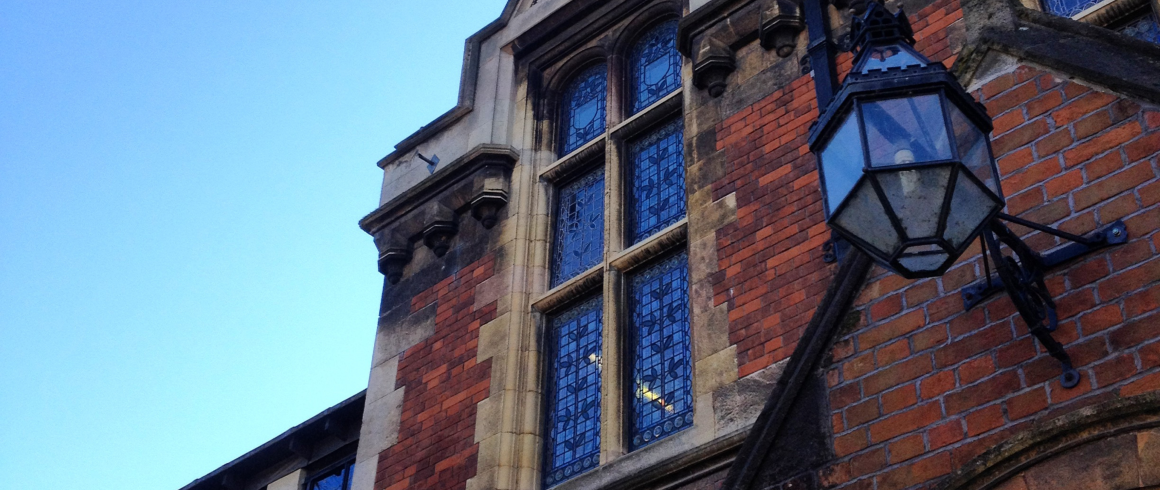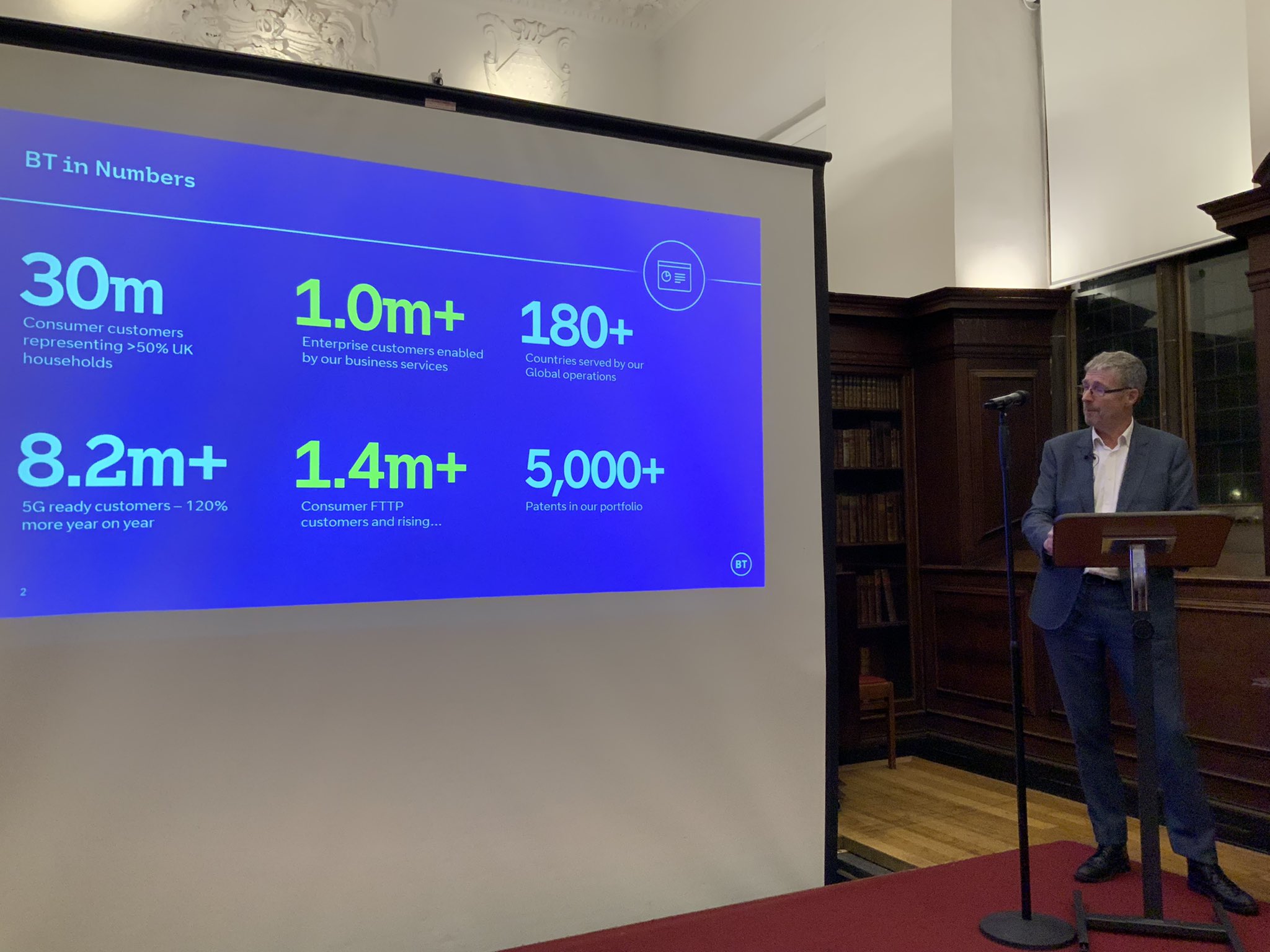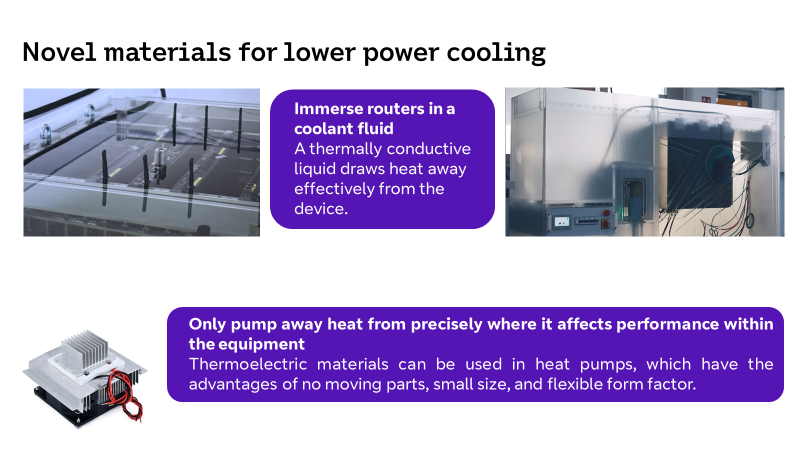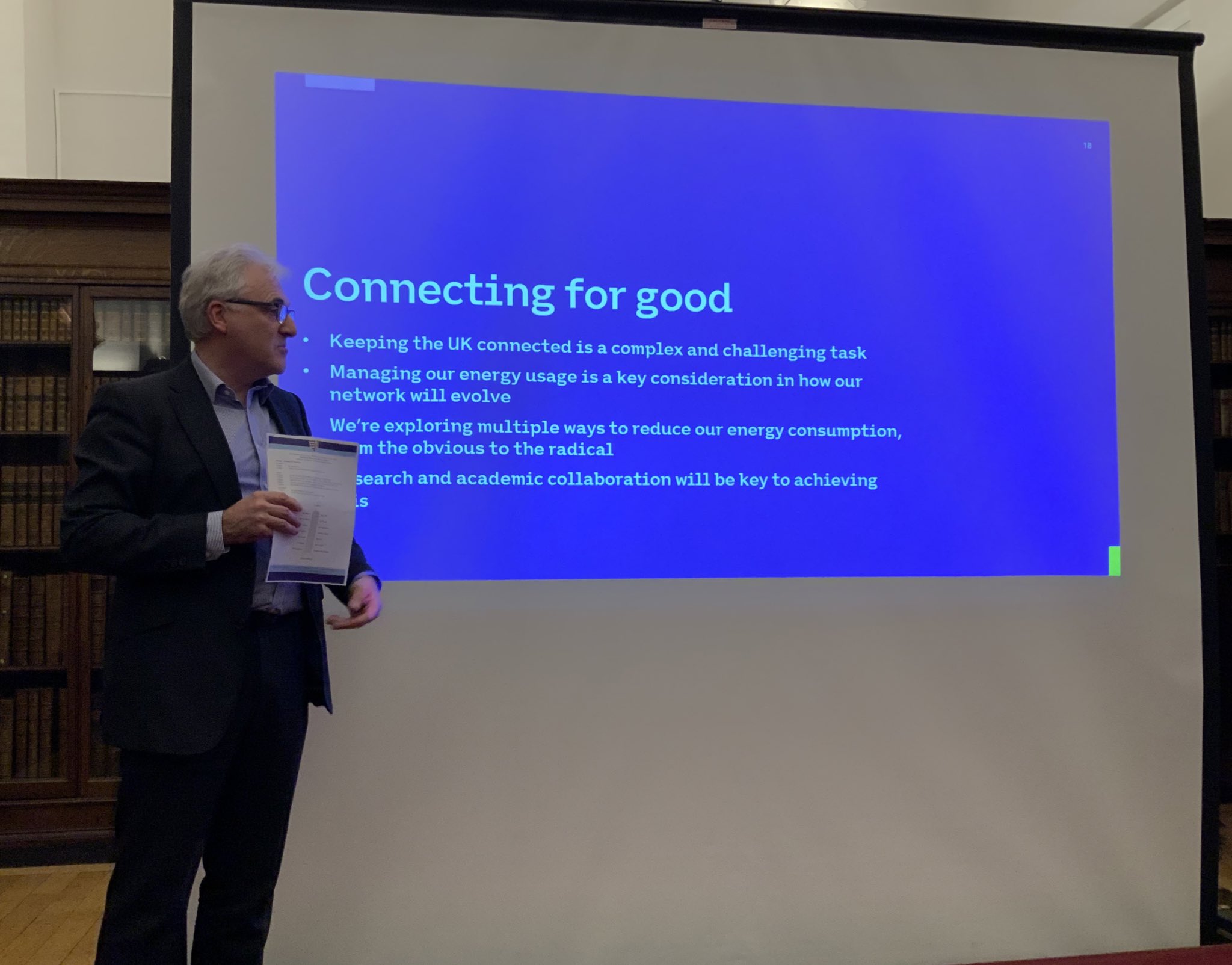BT Pembroke Lecture 2022 - Connecting our digital lives
Every year, the long-standing partnership between Pembroke College and BT is celebrated with the BT-Pembroke Lecture. In a tradition going back over a decade, BT invites a speaker to present areas of their thought-leadership, demonstrate interesting technologies, or to discuss the benefits of academia and businesses working together. On a rainy day in November, Howard Watson, BT’s Chief Security and Networks Officer, gave the 2022 BT-Pembroke Lecture which was a fascinating example of a talk that was a mixture of all three - covering many of the ways that BT is working hard to improve our digital lives, particularly in a more sustainable and energy-efficient way, and how accessing early-stage research enables BT to deliver these aims.
Howard started by giving an introduction to BT, a huge company with over 30 million customers that represents more than half of UK households, but that also serves more than half the globe with over 180 countries worldwide included in its global operations. BT is also high on the scale with its technology assets representing a large footprint in the UK - including ducting that could go more than 15 times round the circumference of the Earth! There are also still 20,000 phone boxes in the UK which are now more used for tourist photos than phone calls, or for more innovative uses such as micro libraries or defibrillators. BT’s network statistics are also impressive, with the 4G mobile network covering 87% of the landmass of the UK and a stated aim to provide 5G whenever and wherever you need it in the UK, and with a fixed network that handles more peak traffic than any other provider at peak times. Howard noted that we are mobile device-centric but actually use the fixed network more than the mobile one, with the majority of our access to data at home over Wi-Fi.
Our desire for more and faster data is constantly increasing and evolving which provides significant engineering challenges, and also opportunities. BT is seeing demand for content from over-the-top video, for improved gaming performance including augmented and virtual reality, and from enterprises wishing to maximise opportunities for increased productivity. Customers don’t know about ‘convergence’, but it is at the heart of BT’s network vision for the UK, and means that BT aims to provide a reliable and resilient connection at the times and places that customers need it most, without them needing to think or worry about how it actually happens.
Howard showed a fascinating graph showing network traffic demand mapped to significant events, demonstrating how this is ‘peaky’ but also predictable – with high traffic linked to events such as Premier League football matches and game updates, and lower traffic at Christmas when we spend time with our families.
BT sources all of its electricity from renewable sources in the UK, and has the second largest private fleet in the UK (after Royal Mail) which is in the process of being electrified, and BT’s office space is being rationalised - but c.95% of BT’s energy is used by the network. Howard explained how BT is working to reduce energy consumption and improve energy efficiency in the network by altering architecture, deploying new technologies, turning off old ones, changing topology and moving to optical switching and exploring novel materials, including for CMOS components and lower power cooling. Howard described how BT does not work alone in this, it works together with suppliers to consider practical engineering solutions to reduce energy consumption.
At last year’s BT-Pembroke Lecture Trevor Linney introduced Rydberg receivers - Howard also described how these might be used to create an antenna with no metal, and that this has the potential to produce high sensitivity receivers with low energy consumption. BT has patented and published papers on Rydberg receivers, demonstrating the power of applying potentially transformative technologies based on academic research to connect people.
Howard ended his Lecture by restating the value BT places on world-leading science and engineering in BT, and his pride in working with the University of Cambridge and other academic partners to continually develop and deliver this in a way that supports their staff, customers, and the planet.
A lively question and answer session followed, which was chaired by William Pitt Fellow Tim Whitley. Howard took various challenging questions from Pembroke Fellows and students, and from our colleagues and connections from across the Cambridge ecosystem. His answers were even more informative, and we departed into the rainy evening inspired and enlightened by the positive contribution academic partnerships can make to businesses and ultimately to society.



